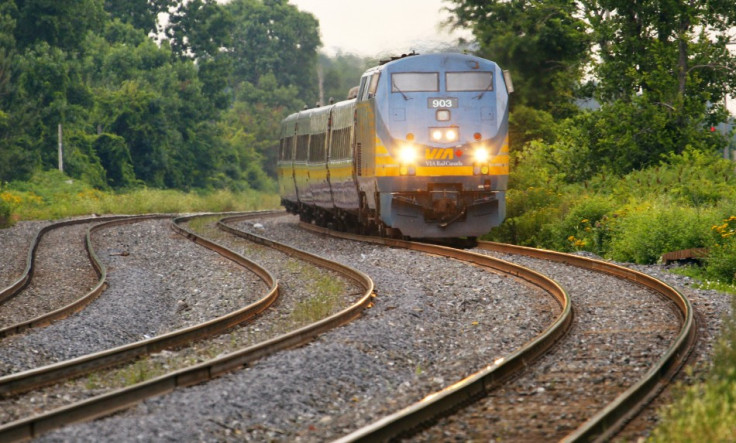Train Fares Rise 4.2 Percent to Put Ticket Prices among Europe's Highest

British campaigners are warning that commuters returning to work in the New Year face the twin misery of ticket price rises and service cuts following a decade of inflation-busting increases that have made UK trains some of the most expensive in Europe.
The prices of season tickets in the UK have increased 4.2 percent on average along with a 3.9 percent overall rise on ticket prices.
The rail fare increase had been set at retail price index (RPI) plus 3 percent, resulting in a total of 6.2 percent, but this was reduced to RPI plus 1 percent by the government in October to a total of about 4.2 percent.
Campaigner Trade Union Congress (TUC) has pointed out that there is a huge disparity between the fare increases and wage increases in the country. Average train fares have increased nearly three times faster than average wages since the beginning of the recession in 2008, TUC said in a statement.
The rise in ticket rates indicates that a family of four looking to travel to London on an anytime ticket from Swansea, Plymouth, Leeds, Manchester or Newcastle in 2013 would have to pay than the average weekly wage of £481 (€592, $784).
"At a time when real wages are falling and household budgets are being squeezed, rail travellers are being forced to endure yet another year of inflation-busting fare increases," said TUC General Secretary and chair of Action for Rail Frances O'Grady.
Passengers are also likely to be hit by ticket office closures and fewer staff on trains and stations in line with government's target to save £3.5bn across the rail industry by 2018/2019, TUC added.
"As well as having to shell out record amounts of money for their tickets, passengers also face the prospect of travelling on trains with fewer staff and having less access to ticket offices. They are being asked to pay much more for less," O'Grady said.
The inflation-busting fare increases have resulted in the country having the highest fares in Europe, which will only fatten the profits of the greedy train operators, according to TUC.
Campaigners such as the Campaign for Better Transport (CBT) and Railfuture said the rail fares that have increased by 50 percent or more in the past 10 years will make travelling to work by train an extravagance, as a growing number people finding train tickets unaffordable.
Even though the rises in the price of annual rail passes were capped at 4.2 percent by the government, actual price hikes by unregulated private train operators would go up to 10 percent, they noted.
The cost of an annual ticket from Banbury to London have increased by 9.2 percent or £436, while an unregulated return between Birmingham and London gone up by 10 percent.
"The impact of successive Government's policies on rail fares is appalling. It's truly shocking that we have deliberately made getting the train to work an extravagance that many struggle to afford. The time has come not just to stop the rises but to reduce fares," CBT chief executive Stephen Joseph said in a statement.
CBT also said that train fares have increased 20 percent faster than wages. It has launched a petition calling on Government to name a date to end the above inflation formula and commit to reducing fares relative to inflation.
In Britain, "regulated" rail fares are calculated by using the Retail Prices Index (RPI) measure of inflation plus an additional percentage.
Railfuture noted that rail fares have increased above inflation for the tenth year in a row, while there is "no perceptible improvement in service."
"Over the last ten years fares have increased by more than 50 percent, much more than people's incomes. Annual increases should be limited to no more than the rate of inflation, and that should be CPI not RPI, because that's the lower figure and pensions benefits and salaries are all linked to CPI," Bruce Williamson of Railfuture said.
Amid widespread criticism, Transport minister Norman Baker has admitted the flaws in the current rail fare structure and promised that the government would end above-inflation rises as soon as possible.
© Copyright IBTimes 2025. All rights reserved.






















